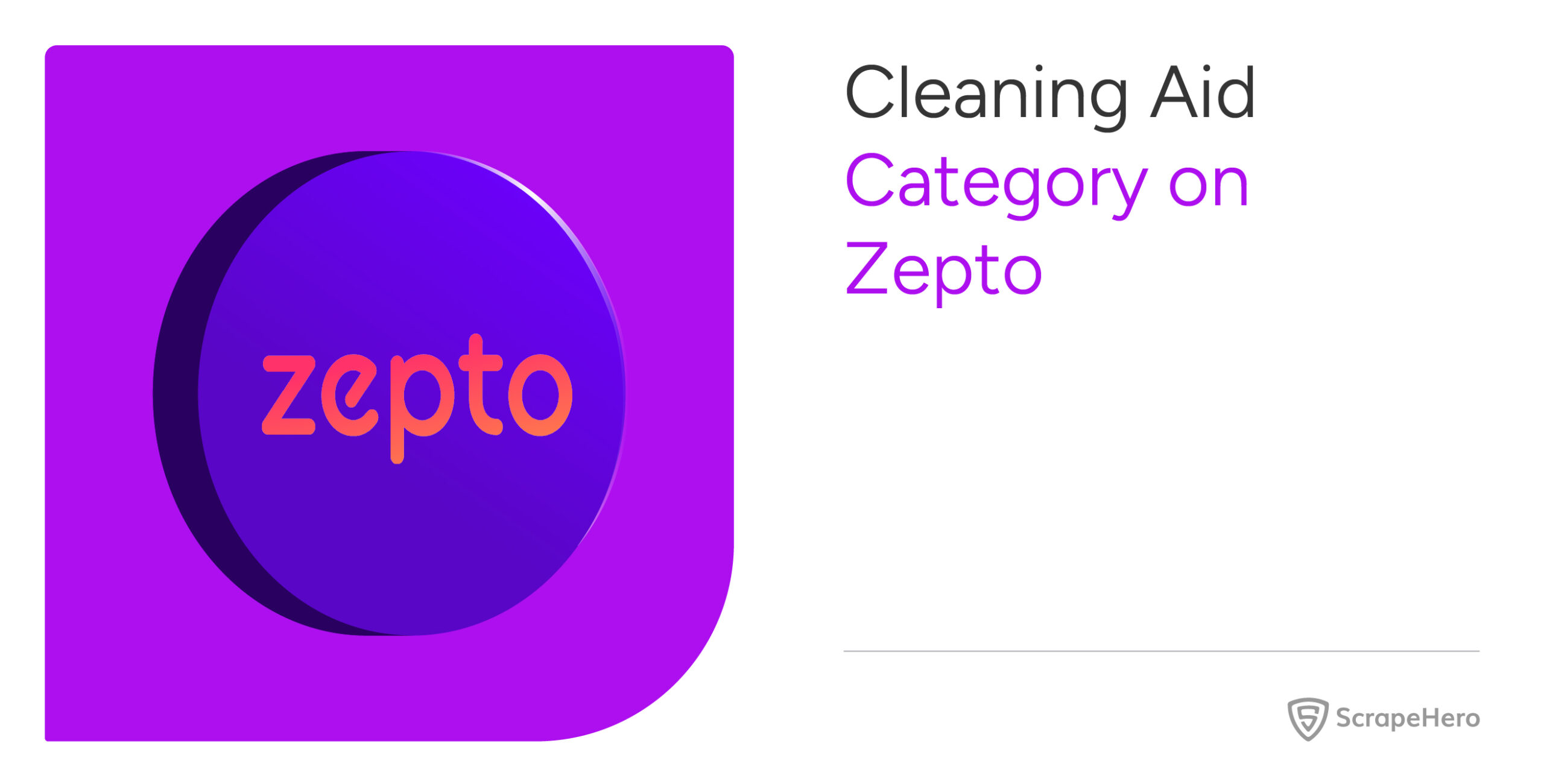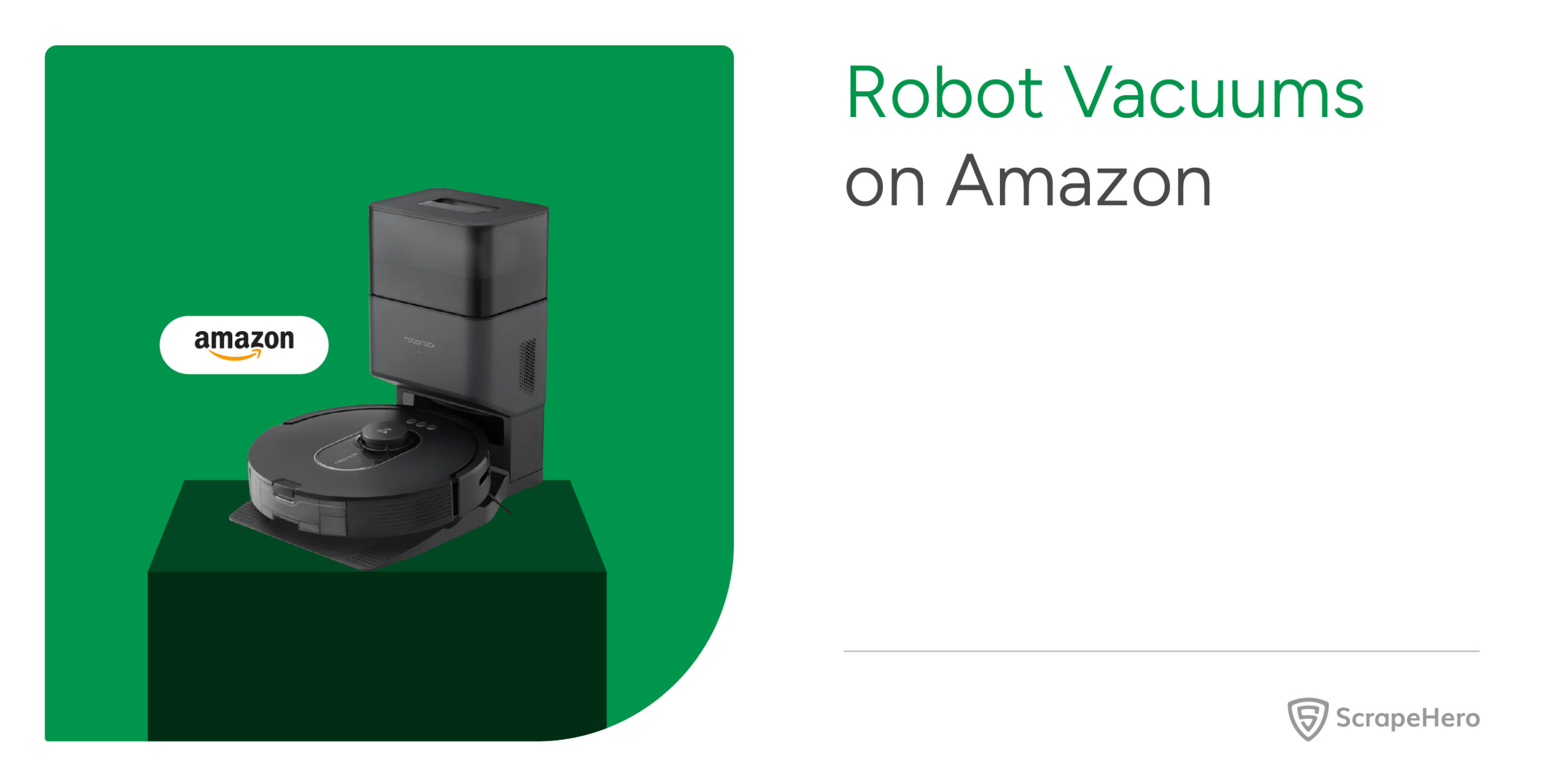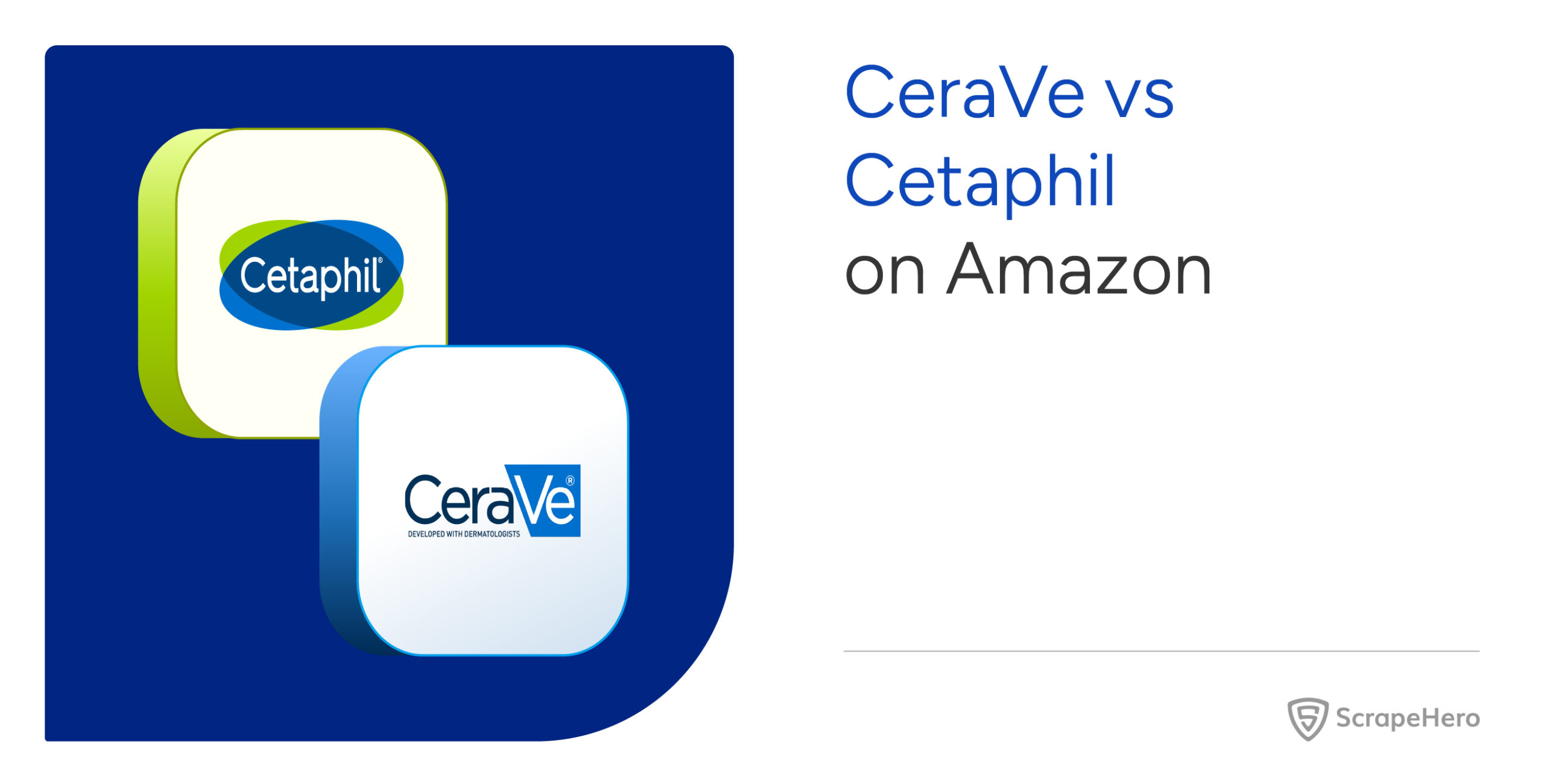Selling video games on Amazon isn’t just about listing a product and waiting for sales to roll in!
It’s a competitive space where pricing, visibility, and customer engagement can make or break a brand.
With thousands of listings competing for attention, the right strategy separates top sellers from those struggling to gain traction.
We analyzed 32,716 video game listings over a week to lay bare what’s really driving sales, pricing trends, and brand dominance.
This report breaks down the numbers, giving brands, sellers, and industry professionals the insights they need to compete and win in Amazon’s video game marketplace.
NB: We have used the ScrapeHero Cloud Amazon Search Results Scraper to gather the data for the analysis.
With ScrapeHero Cloud, you can download data in just two clicks!Don’t want to code? ScrapeHero Cloud is exactly what you need.
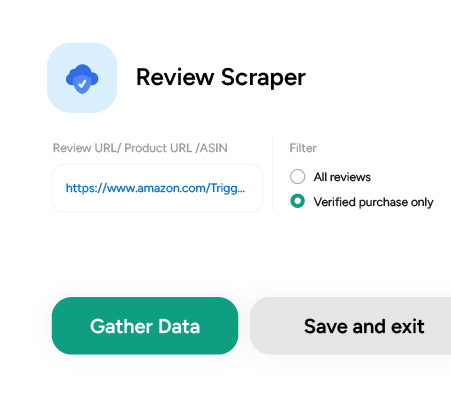
Nintendo’s Brand Power and Customer Engagement
Our Amazon video games analysis shows how Nintendo stands as the undisputed leader in Amazon’s video game marketplace, both in product availability and customer engagement.
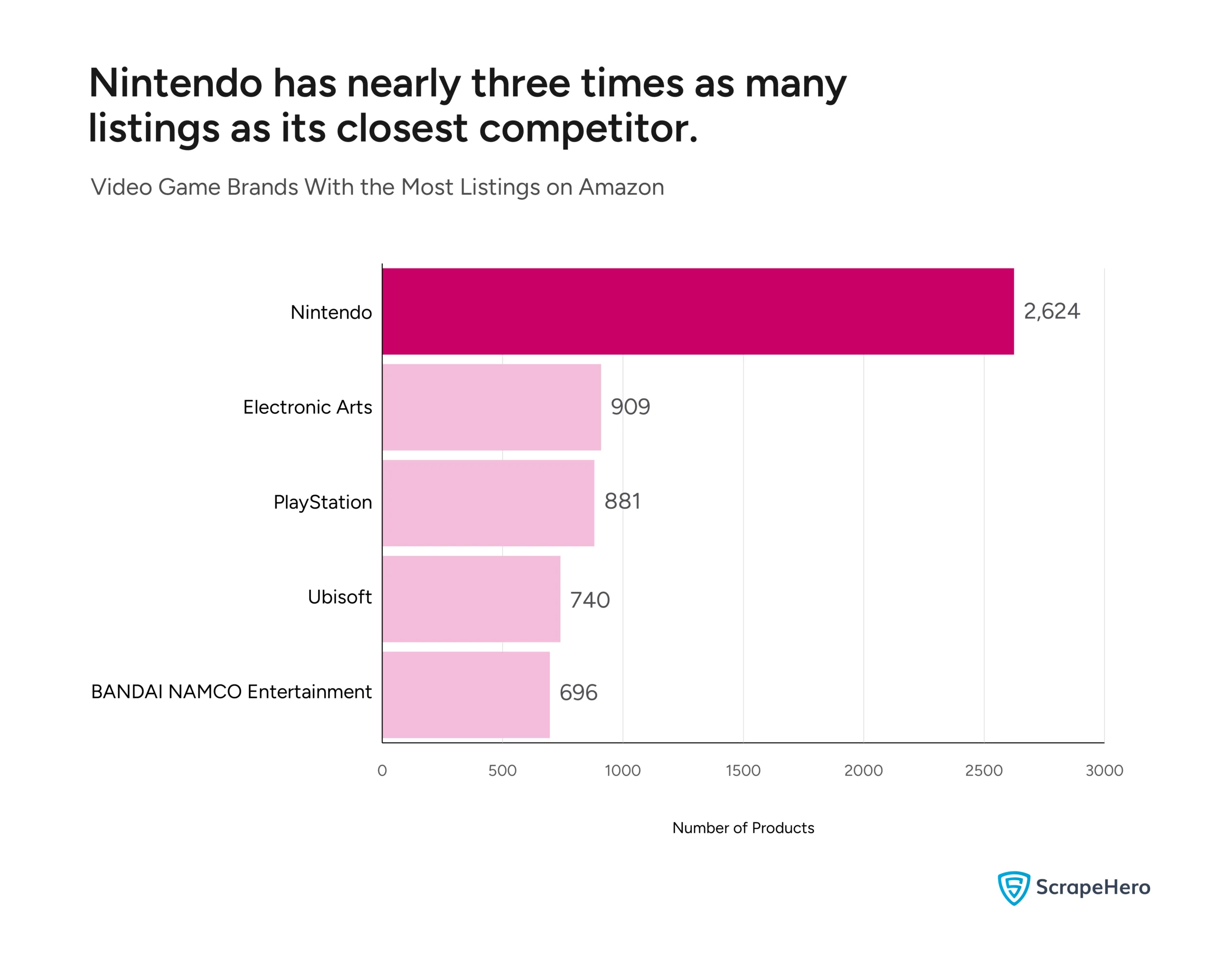
The above graph highlights Nintendo’s overwhelming presence in Amazon’s video games category, with 2,624 listed products.
That is nearly three times more than its closest competitor, Electronic Arts (909 products).
PlayStation (881), Ubisoft (740), and Bandai Namco (696) follow behind, but none come close to Nintendo’s numbers.
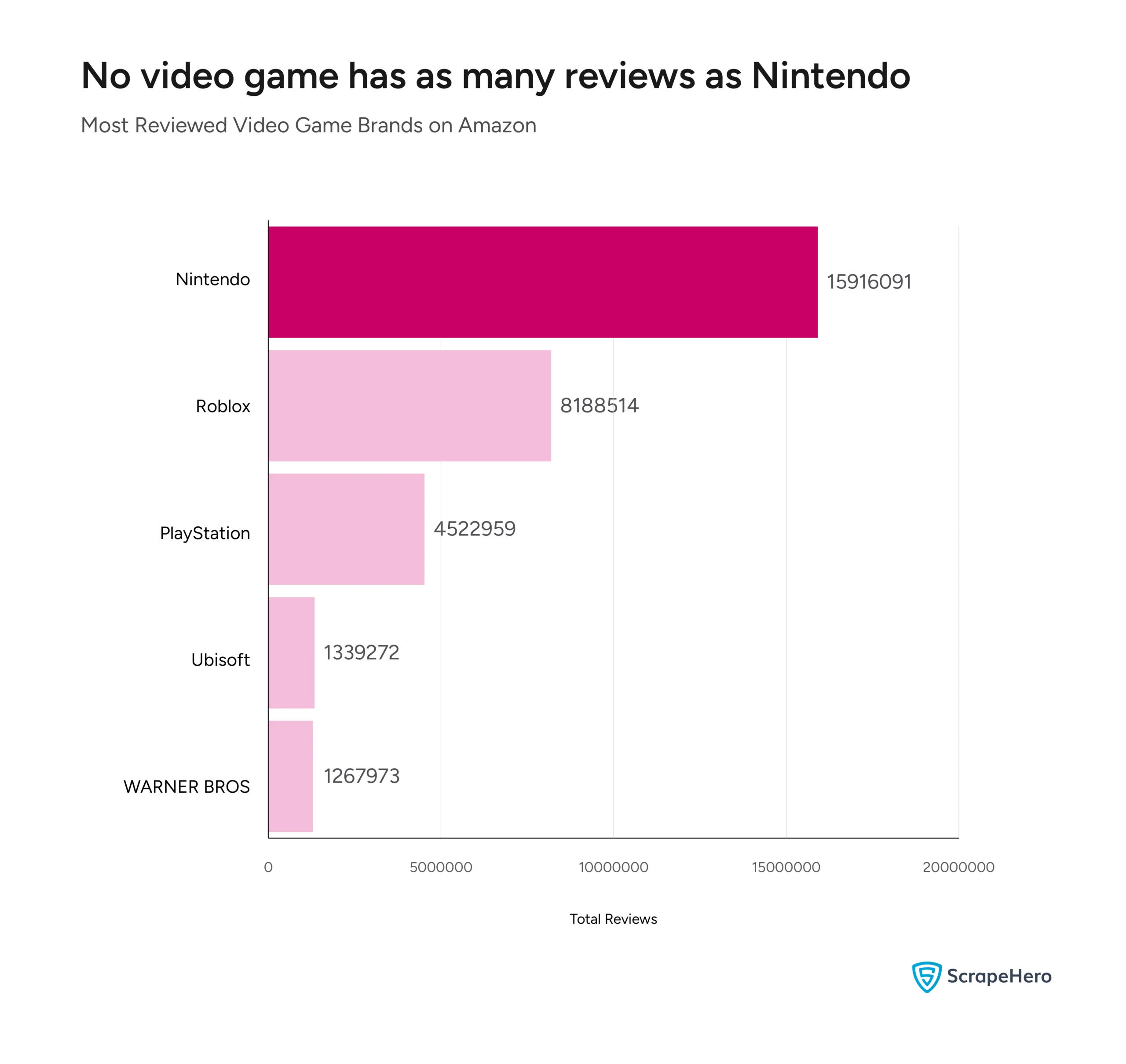
The above graph reveals Nintendo’s leadership in customer engagement.
The brand has received 15.916 million customer reviews, far surpassing Roblox (8.1 million), PlayStation (4.5 million), and other major players.
Do you think more reviews correlate with higher customer trust, influencing new buyers’ purchase decisions?
Use ScrapeHero Cloud Amazon Product Reviews and Ratings Scraper to easily gather product reviews such as product name, reviews, ratings, review text, author, and 10+ data points from any Amazon domain.
How Customer Ratings Reflect Overall Satisfaction
Customer ratings play a crucial role in shaping Amazon’s purchase decisions.
Our Amazon video games category analysis brings to light a strong positive trend in customer satisfaction.
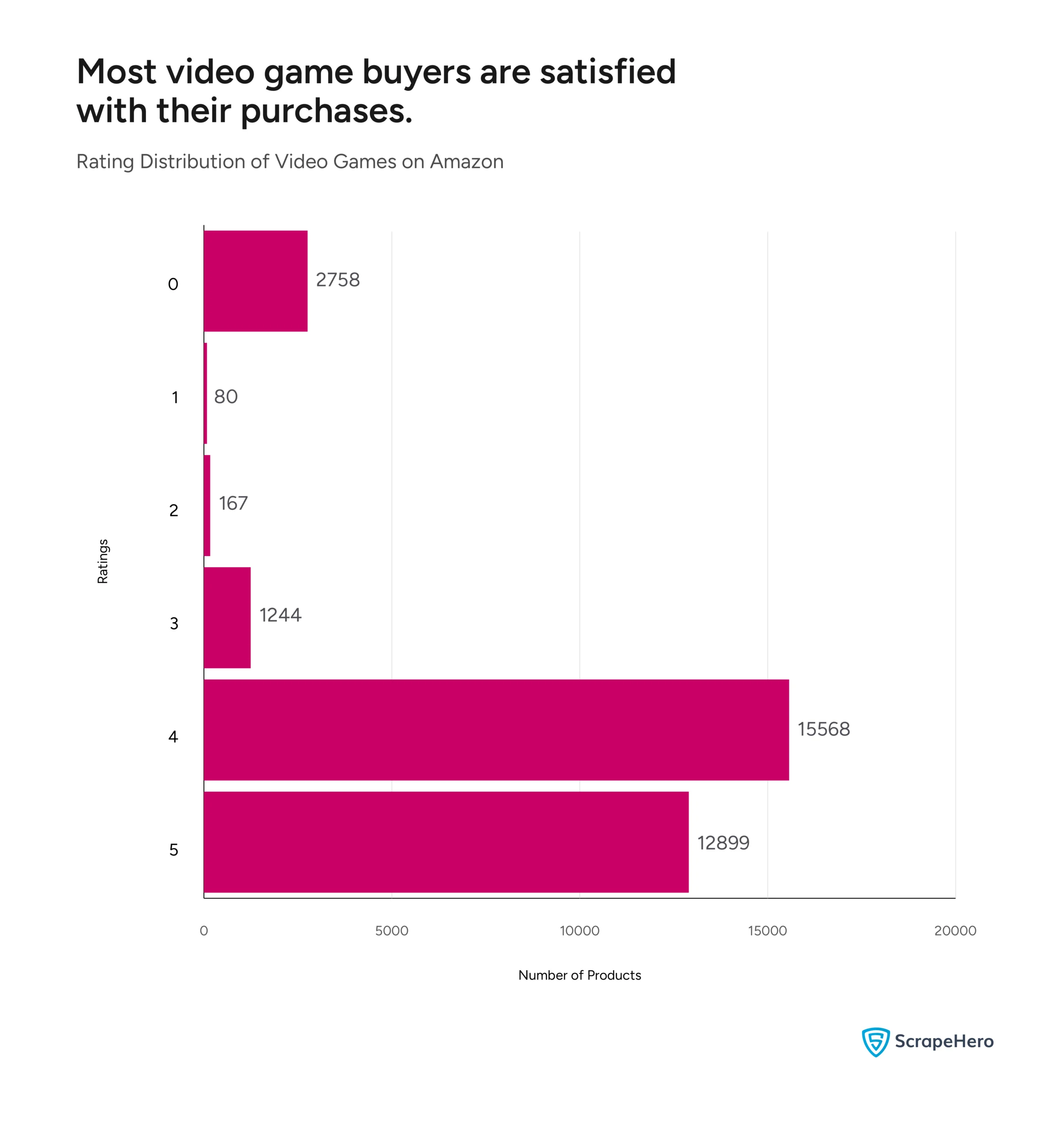
The Dominance of High Ratings:
The majority of video game products on Amazon receive either 4-star or 5-star ratings, with:
- 15,568 products (largest share) rated 4 stars
- 12,899 products rated 5 stars
Low Ratings Are Rare:
In contrast, 1-star and 2-star ratings are extremely low:
- Only 80 products have a 1-star rating.
- 167 products have a 2-star rating.
This suggests that while negative experiences exist, they represent a very small fraction of the total video game listings.
The Unrated Segment:
A significant portion, 2,758 products, have no ratings at all. These could be:
- Newer releases that haven’t accumulated enough customer feedback.
- Niche or low-demand titles that don’t get much traction.
- Products sold by lesser-known sellers that haven’t built trust yet.
The takeaway? Video game buyers on Amazon are generally satisfied with their purchases.
Decoding Pricing Anomalies
Pricing on Amazon doesn’t always follow a clear pattern.
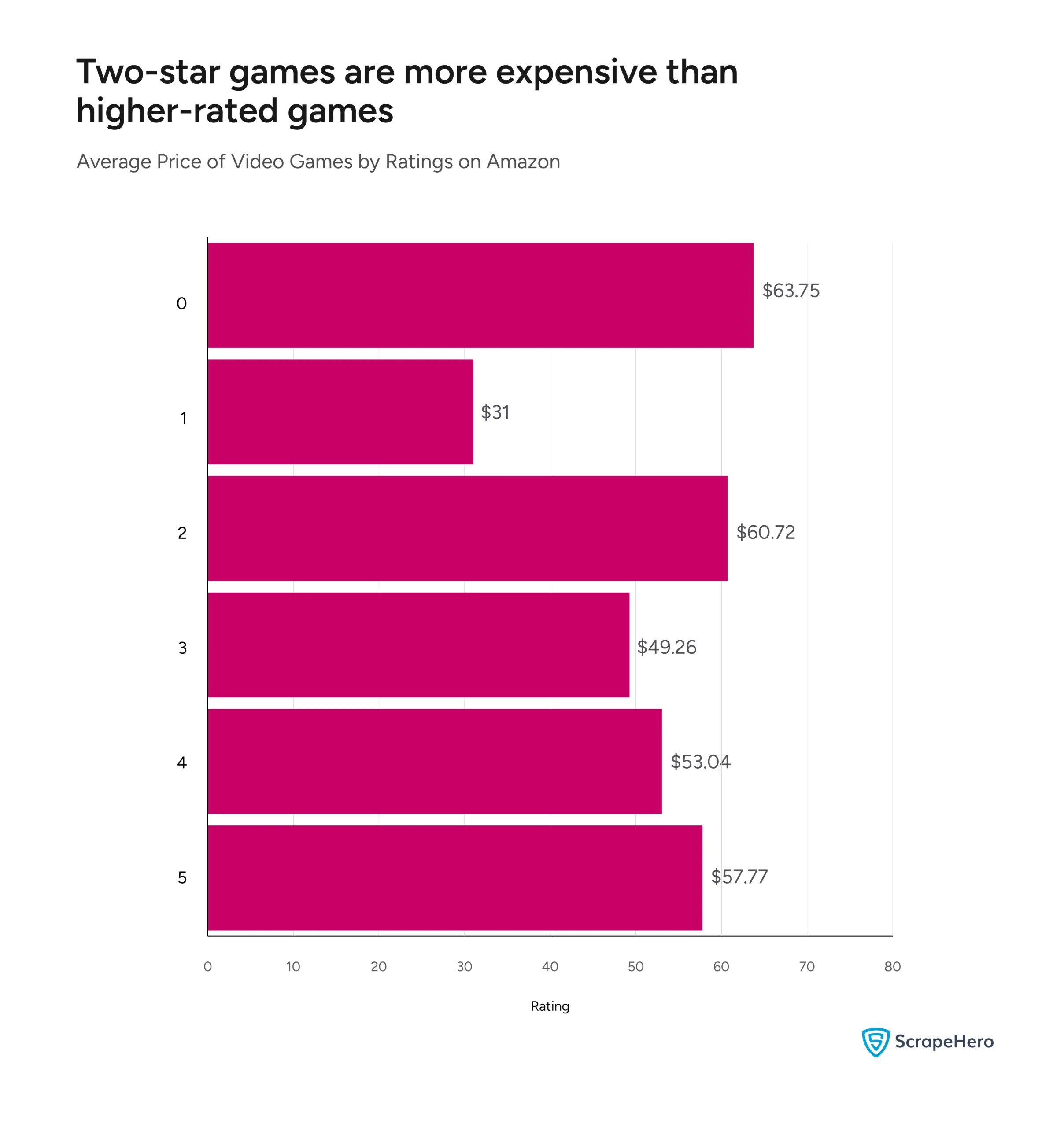
Unrated Games Are the Most Expensive
Video games with no ratings have the highest average price at $63.75. This suggests that many unrated products are either:
- New releases that haven’t accumulated enough reviews yet.
- Collector’s editions or premium versions that naturally come at a higher price.
- Low-demand titles with limited sales but high pricing to compensate for low volume.
Two-Star Games Are More Expensive Than Higher-Rated Games
Another notable anomaly is that 2-star games average $60.72, which is higher than 3-star, 4-star, and even 5-star games. This could be due to:
- Price mismatches where customers feel the game isn’t worth the cost, leading to lower ratings.
- Niche or exclusive games that maintain a high price despite mixed customer feedback.
- Lack of competition in certain game categories, forcing buyers to pay a premium even for poorly rated products.
Higher Ratings Don’t Always Mean Higher Prices
- 5-star games average $57.77, while 4-star games sit lower at $53.04.
- 3-star games are the cheapest among rated games at $49.26.
The key takeaway? Pricing isn’t just about setting a number—it’s about aligning customer expectations, perceived value, and competitive positioning.
The Impact of Sponsored vs. Non-Sponsored Listings on Pricing
Let’s find out if Amazon’s sponsored product placements translate to higher prices.
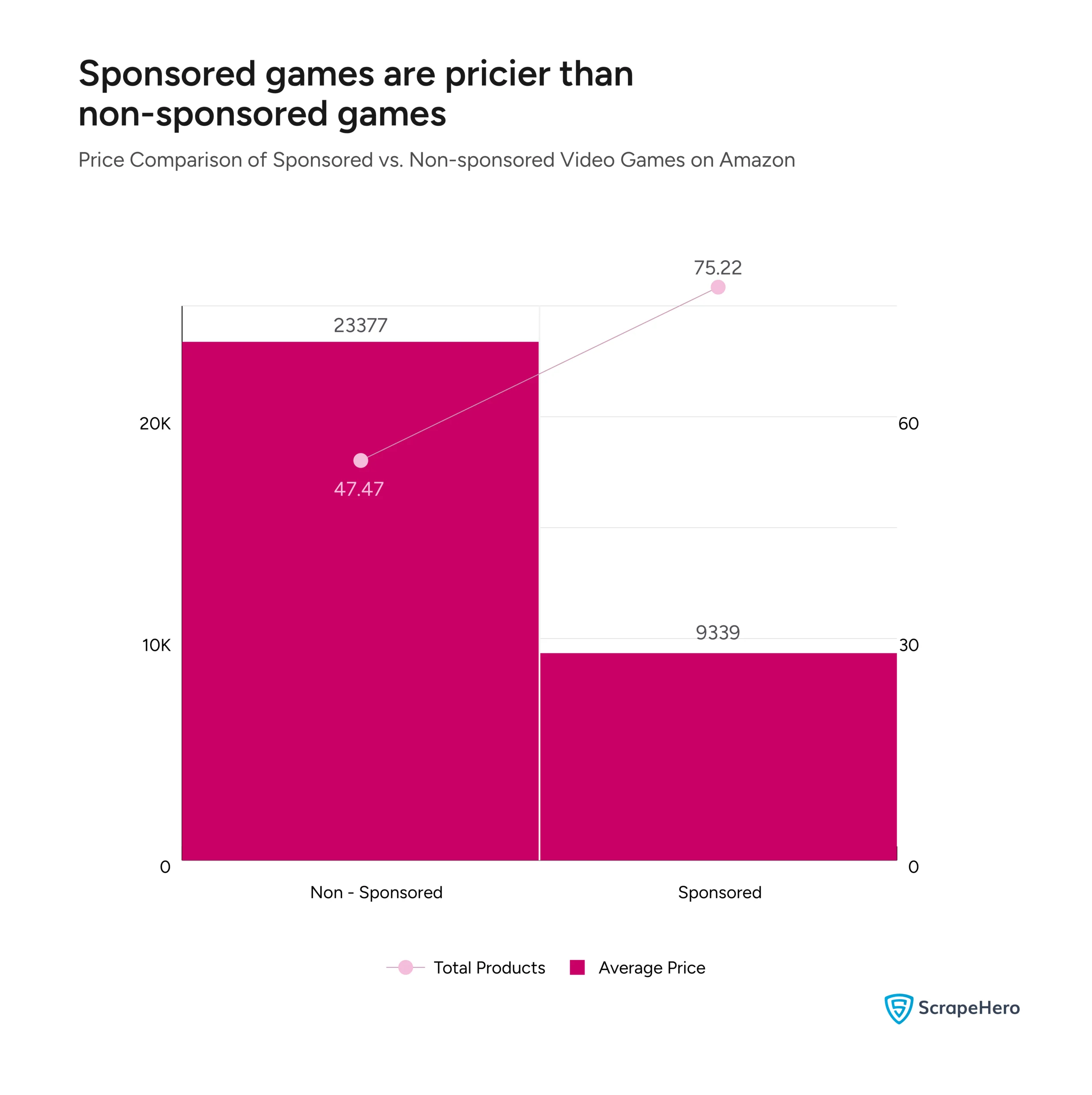
Sponsored Games are Priced Higher
- Sponsored video games have an average price of $75.22, compared to $47.47 for non-sponsored games.
- Despite this higher pricing, only 9,339 products are sponsored, while 23,377 are non-sponsored.
This suggests that sellers using Amazon Ads often position their games as premium offerings or rely on paid visibility to push higher-margin products.
Seller Strategies: Volume vs. Discounts
The Amazon video game marketplace is shaped by two key seller strategies: high-volume listings vs. aggressive discounting.
Some sellers dominate through sheer product numbers, while others focus on heavy discounts to attract price-sensitive buyers.
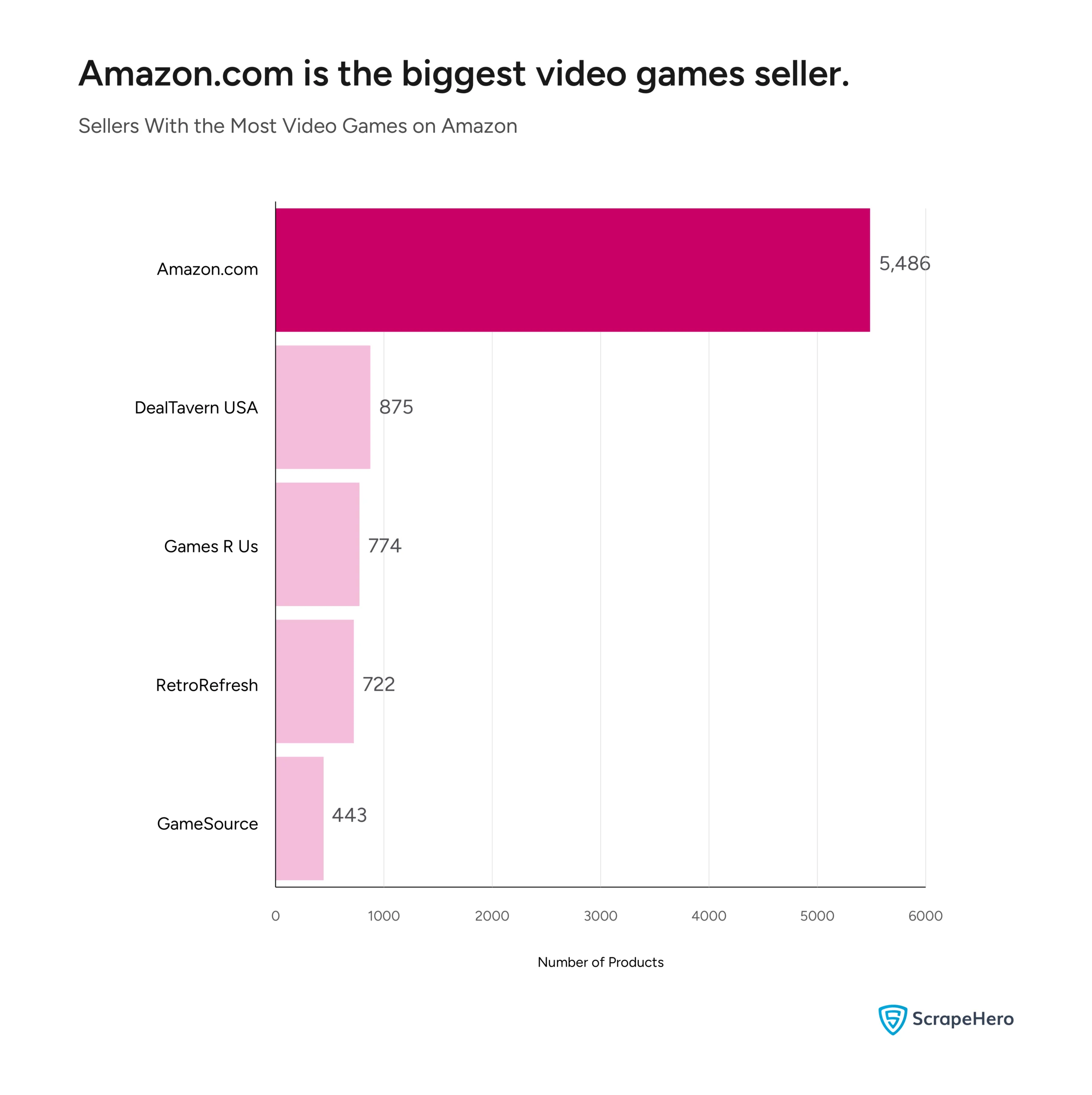
Our Amazon video games market analysis revealed that Amazon.com itself is the largest video game seller, with 5,486 listed products—far surpassing third-party sellers like DealTavern USA (875), Games R Us (774), and RetroRefresh (722).
Now, let’s look at the brands that rely on deep price cuts to move inventory.
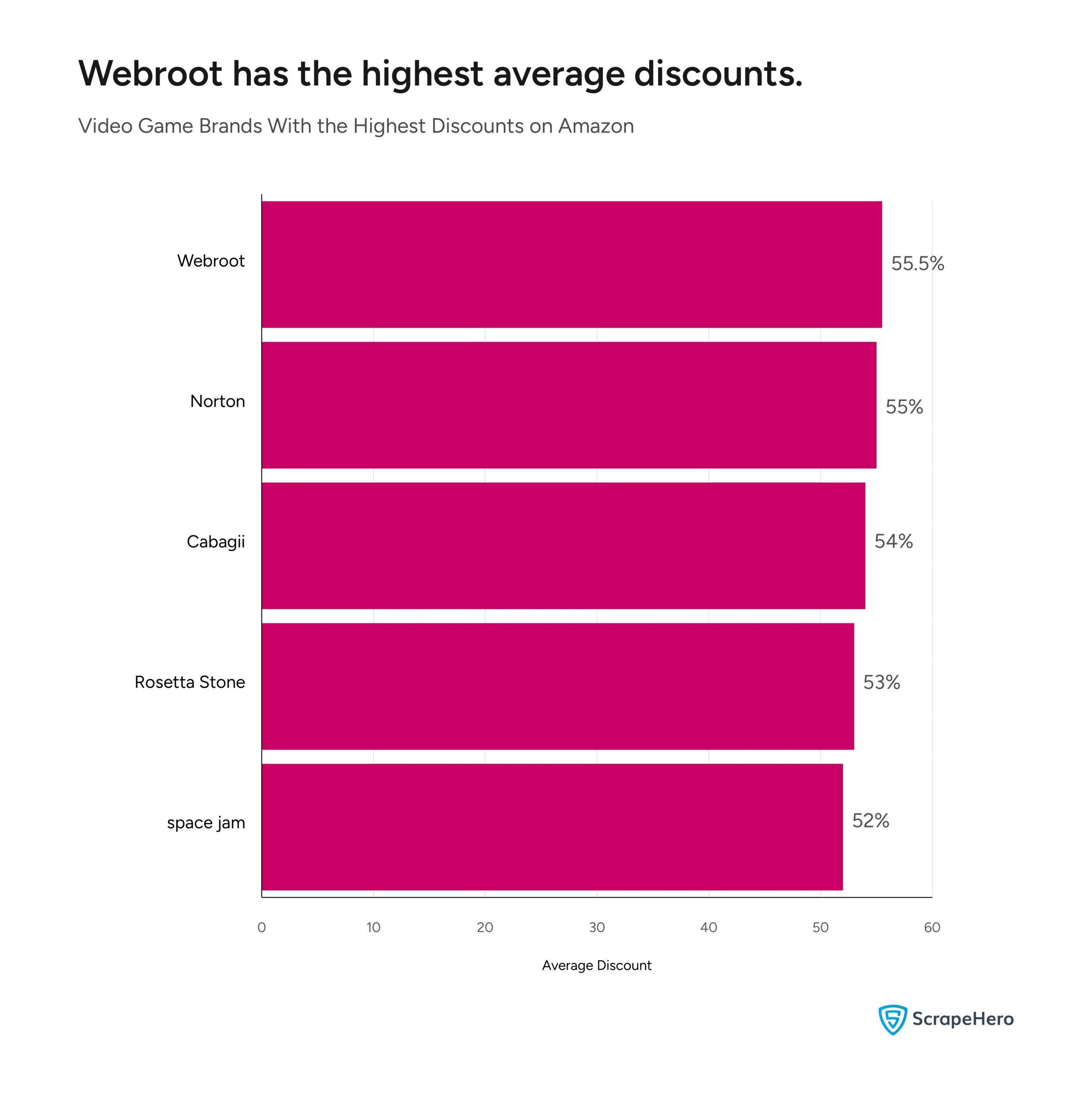
Webroot (55.5%), Norton (55%), and Cabagii (54%) are among the brands with the highest average discounts.
What Did Our Amazon Video Games Market Analysis Reveal?
In conclusion, the Amazon video game marketplace is a highly competitive environment.
Nintendo stands out as the leader in both the number of listings and customer engagement.
Our analysis of over 32,000 listings revealed that most video game buyers on Amazon are generally satisfied with their purchases, as evidenced by the dominance of 4-star and 5-star ratings.
However, pricing is complex—unrated and 2-star games often have high prices, and sponsored listings cost more.
Sellers employ different tactics, with Amazon.com itself being the largest seller by volume. Many other sellers are seen to be depending on deep discounts.
Success in this space depends on brand strength, customer feedback, smart pricing, and strategic visibility.
Have a Similar Analysis in Mind?
If you need an easy tool to scrape data from popular websites, ScrapeHero Cloud is ideal.
But if you require custom data extraction, complex web navigation, or simply want to save time, partnering with ScrapeHero’s web scraping service is the smarter choice.
We handle everything—data collection, accuracy, and delivery—so you don’t need software, hardware, or scraping expertise. Focus on using data for your business, not extracting it.
Connect with ScrapeHero today.





